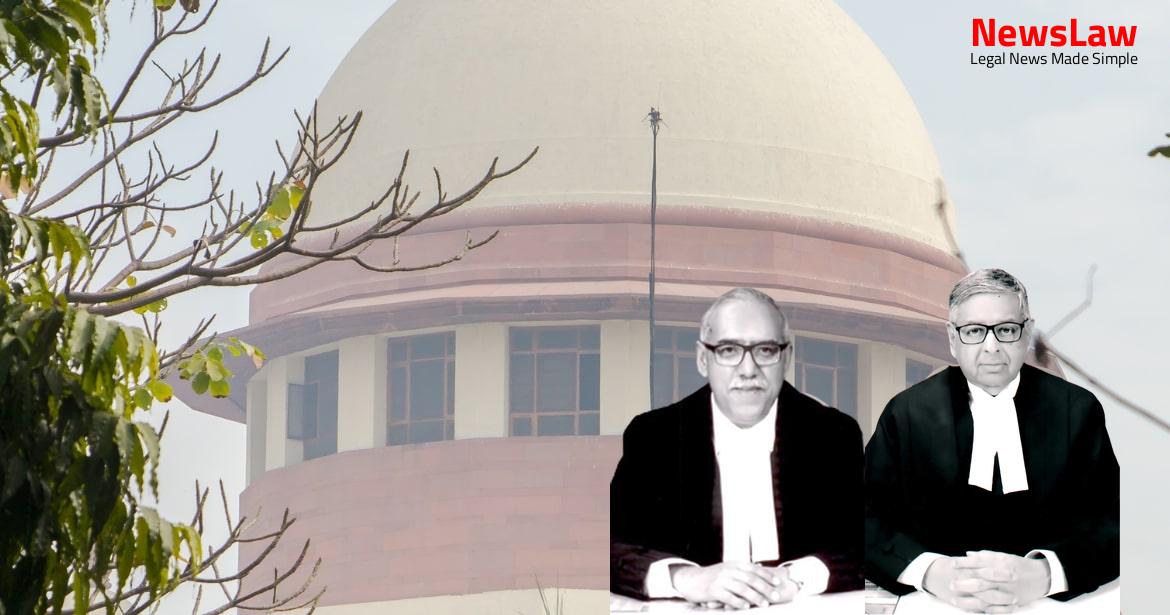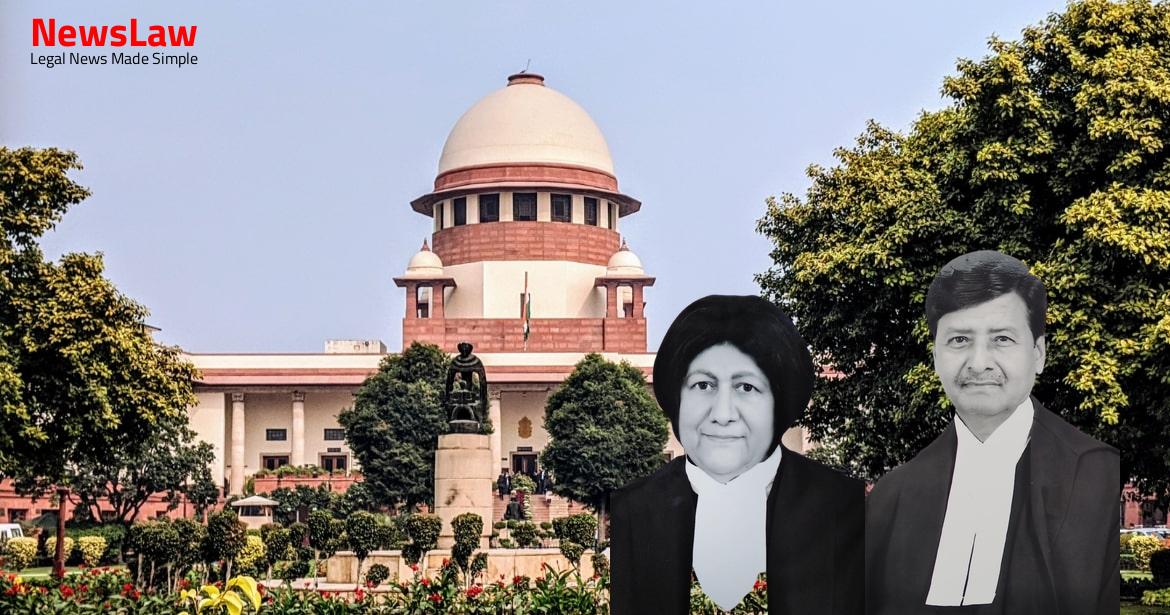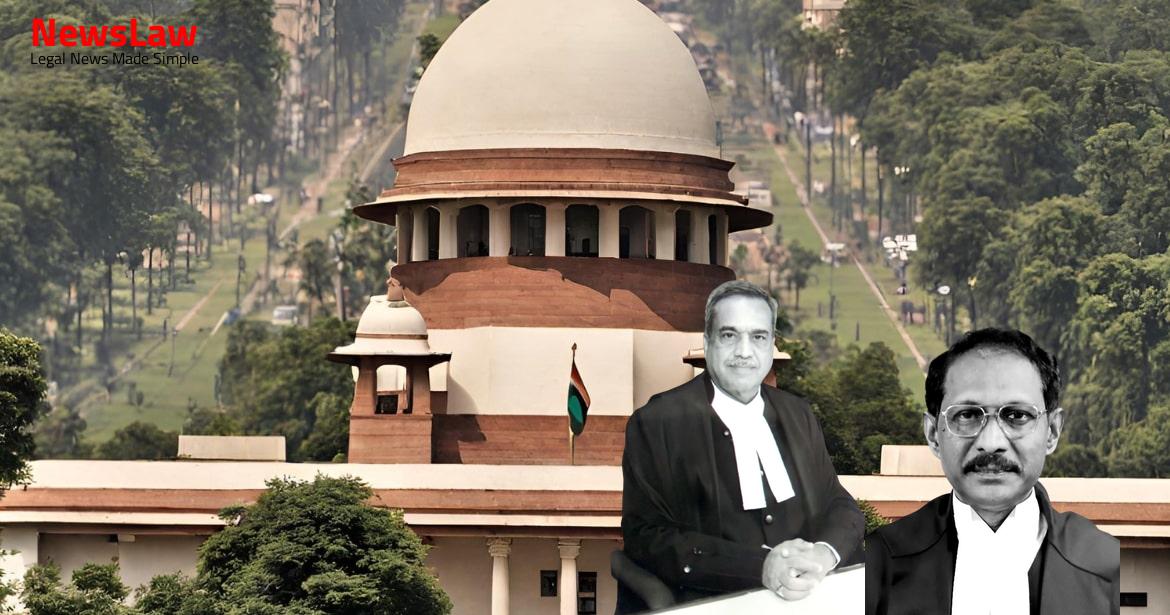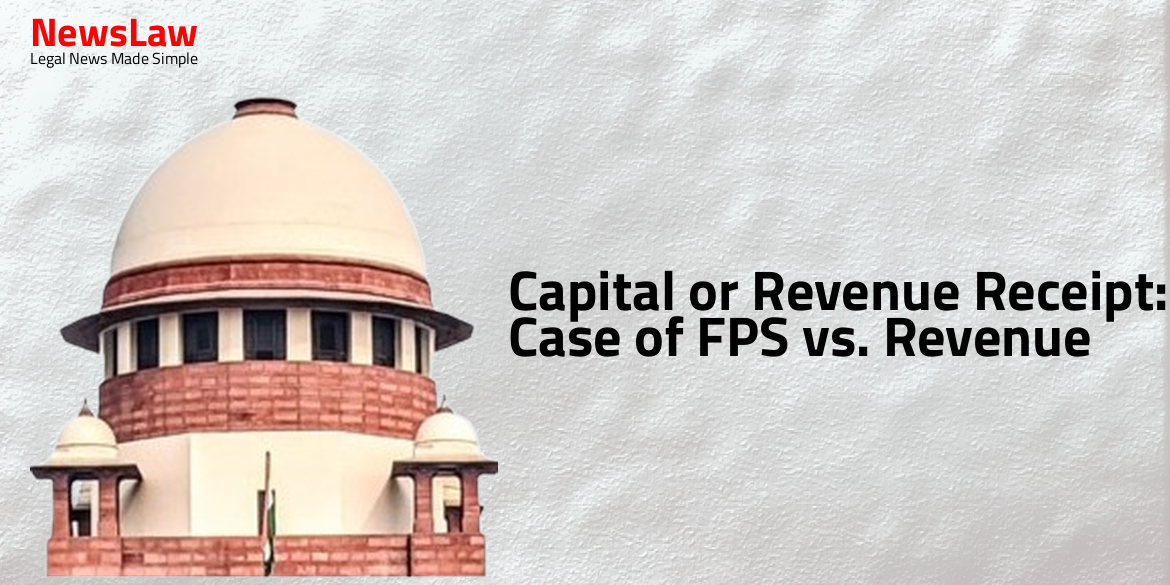In a recent landmark decision, the Supreme Court of India reviewed the judgment on execution of decree with a lease extension clause. The case involved disputes regarding the scope of the decree and the authority of the Executing Court to grant extensions beyond the specified date. This judgment has significant implications for future similar cases, shedding light on the boundaries of Executing Court’s powers. Stay tuned for more insights on this crucial ruling!
Facts
- Appellant filed petition for execution of the decree, respondents proceeded ex parte.
- Writ petition filed under Article 227, challenging order dated 20.08.2010.
- Contention that Executing Court exceeded scope of decree in drafting lease deed with extension clause.
- Draft lease deed registered on 17.08.2010 with extension clause.
- Fresh suit filed for specific performance of renewal of lease deed from 01.04.2013.
- Appellant exercised right to extend lease, but respondents refused for 30 years extension.
- Executing Court re-typed lease deed as earlier one, including renewal clause.
- Plaintiff’s execution petition dismissed as satisfied on 20.08.2010.
- Suit filed for specific performance of 30-year extension of lease deed.
- Court must examine if Executing Court went beyond judgment and decree in approving and permitting registration of draft lease deed.
Also Read: Enforcement of Foreign Award: Case of Oscar Investments Limited and RHC Holding Private Limited
Arguments
- Shri C.U. Singh, senior counsel for the appellant, argues that the order dated 20.08.2010, disposing of the execution petition, cannot be challenged under Section 115 of the Code of Civil Procedure as it only follows the decree holder’s statement.
- Challenging the order would lead to a revival of proceedings, which should not occur.
- It is suggested that the proper remedy for the appellant is to file an application under Order XXI Rule 106, instead of a Section 115 petition.
- Shri S.N. Bhat, counsel for the respondents, contends that their challenge under Section 115 is due to the time bar of 30 days under Order XXI Rule 106, preventing them from challenging the ex parte proceedings.
- Respondents have been rightly proceeded ex parte
- Decree must be executed as per its terms
- Executing Court cannot grant relief beyond what is mentioned in the decree
Also Read: Case of Eligibility for Disability Pension: Air Force Officer’s Retirement
Analysis
- The issue at hand is whether the Executing Court had the authority to grant an extension beyond 2013 as per the decree passed by the Civil Court.
- There is no provision for an appeal against such orders where the Executing Court is alleged to have exceeded the scope of the decree.
- The matter has been remanded for proceedings under Section 115 of the Code of Civil Procedure, leaving it to the Executing Court to determine if the decree allows for extensions beyond 01.04.2013.
- The High Court’s jurisdiction under Section 115 of the Code of Civil Procedure is being reviewed.
- The petition against the order dated 04.08.2010 was dismissed by the High Court, stating that nothing remains in the writ petition for it to be maintainable.
- The appellant was granted liberty to seek relief as per the law.
- As the respondents did not utilize Order XXI Rule 106, they cannot now claim that they were wrongly proceeded ex parte, making that part of the proceedings final.
- The revival of an execution petition does not negate the finality of the order
- The final order brings an end to the proceedings
- Ensuring that no party is left without a remedy
Also Read: Judicial Integrity Upheld: High Court Disciplinary Proceedings Quashed
Decision
- The Executing Court shall not be influenced by any observations made by the High Court or the Supreme Court.
- If the Executing Court agrees with the respondents that the lease could not have been extended beyond 31.03.2013, it will conclude the matter.
- The High Court was within its jurisdiction to entertain the matter.
- The suit was decreed, with costs awarded from the defendants to the plaintiff.
- The High Court’s dismissal of the petition under Article 227 was upheld.
- The Executing Court will determine whether the lease deed renewal was limited up to 31.03.2013 or permitted another extension thereafter.
- There will be no continuity of proceedings in that sense.
- The defendants are ordered to pay Rs.201/- to the plaintiff as the costs of the suit.
Case Title: M/S BAGALKOT UDYOG LIMITED Vs. SHIVASHANKARGOUDA
Case Number: C.A. No.-007593-007593 / 2019



